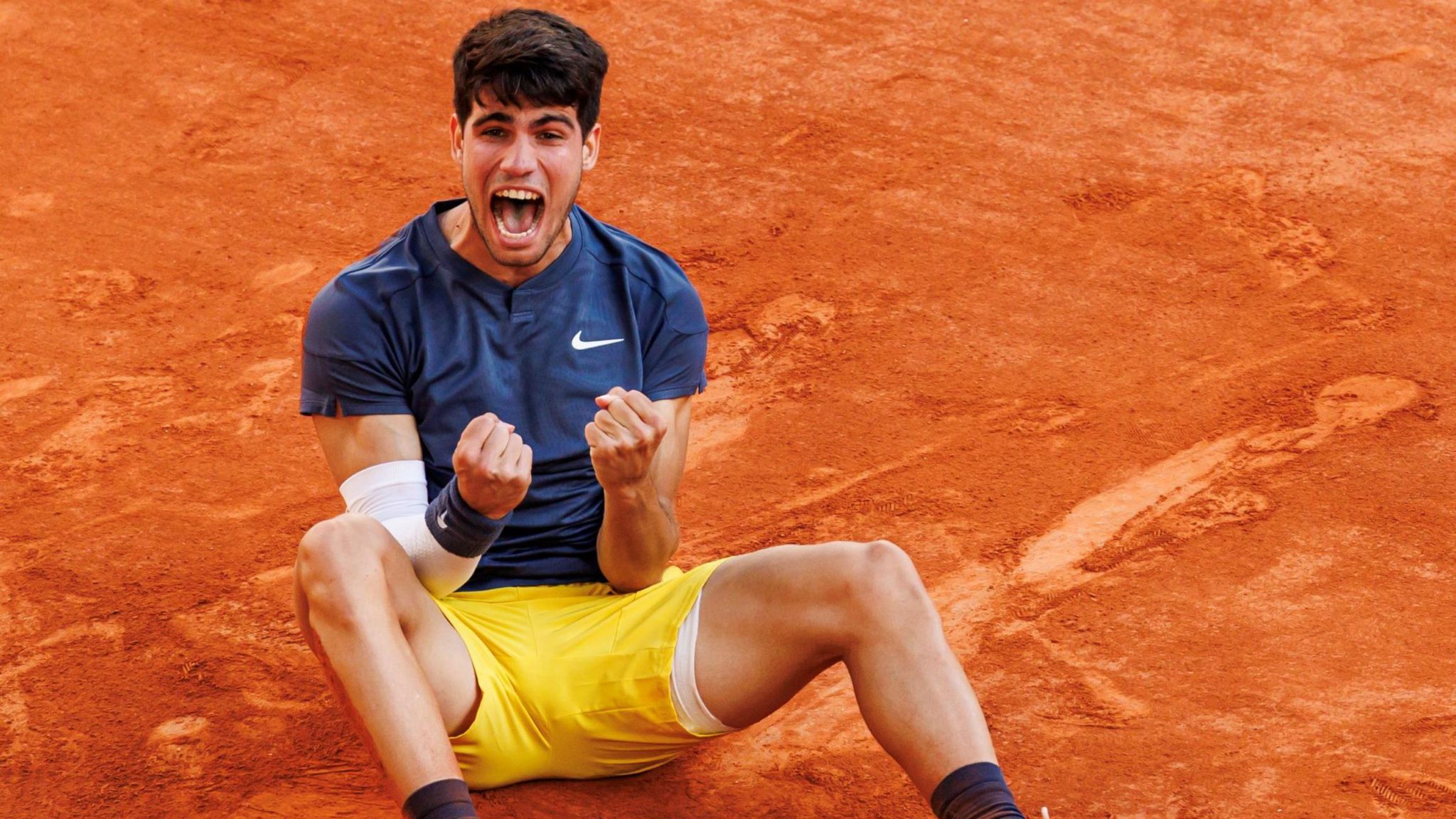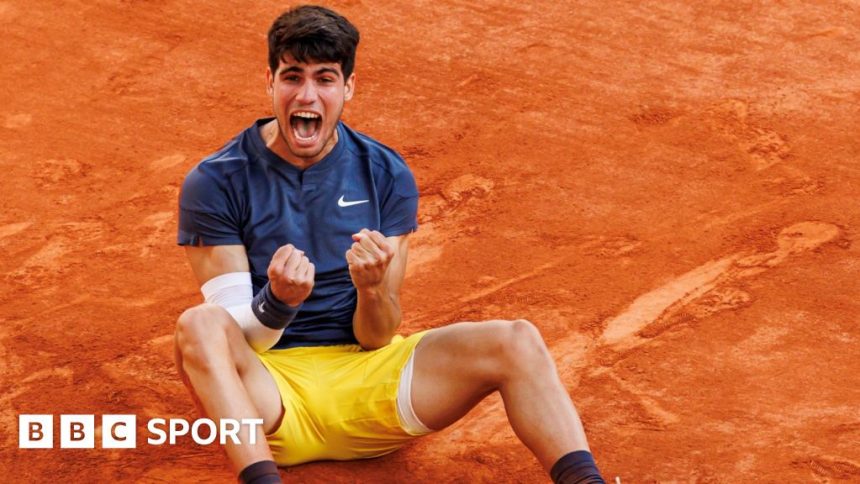Alcaraz plans Eiffel Tower tattoo to mark Paris destiny

Carlos Alcaraz is the youngest man to win Grand Slam titles on three different surfaces
-
Published
In the lead-up to his first French Open final, a photo reappeared of a 12-year-old Carlos Alcaraz sat in front of the Eiffel Tower watching the tournament on a big screen.
Now Alcaraz plans to have a tattoo of the iconic landmark as a permanent reminder of winning the tournament he loved as a child.
The 21-year-old Spaniard claimed the Grand Slam title many thought he was destined to lift with a five-set victory over Germany’s Alexander Zverev on Sunday.
“It will be on the left ankle – the Eiffel Tower and today’s date,” Alcaraz said.
“I have to find time but I will do it for sure.”
The excitement in the young Alcaraz’s smile as he sat on the Champ-de-Mars grass with childhood coach Carlos Santos showed what it meant to be there.
There is another snap of the starry-eyed pair on Court Philippe Chatrier during the same 2015 trip.
Alcaraz grew up playing on clay courts and used to run home from school to watch Roland Garros.
“Winning a Grand Slam is always special, but here in Roland Garros, knowing all the Spanish players who have won here, to put my name on that list is unbelievable,” Alcaraz said.
“I dreamt to be in this position since I started playing tennis and I was five or six years old.”
Last year, Alcaraz was hampered by nerves in the semi-finals because he was overawed by his opponent – the incomparable Novak Djokovic.
He had to overcome them again this year against incoming world number one Jannik Sinner in the last four.
In the title match with Zverev, he looked edgy and unconvincing.
But Alcaraz demonstrated ‘cabeza, corazon, cojones’ – the advice famously given by his grandad to show head, heart and courage in difficult moments and the inspiration for a tattoo on his wrist – to come through.
“The interesting thing is we all thought he would win the French Open as his first major,” former British number one Greg Rusedski told BBC Sport.
“Last year against Djokovic he got super tight, cramping and got nervous. It happened against Sinner as well.
“It felt like his destiny to win this event and now he’s found a way to win it, the sky is the limit.”
-
-
Published3 hours ago
-
‘Breaking Nadal’s records – but there is one Alcaraz won’t beat’
Alcaraz was playing in his third Grand Slam final, having shown few nerves in winning the 2022 US Open and last year’s Wimbledon.
Getting over the line at Roland Garros means he is the youngest man to capture Grand Slam titles on all three surfaces – hard, grass and clay – and just the seventh overall.
Clay is the natural surface for Spanish players, with about 60% of courts made up of the red dirt – most small villages have them.
“The youngest before him to do that was Rafael Nadal. The youngest before him to win a first major was Nadal,” added Rusedski, who watched the final as a summariser for BBC Radio 5 Live.
“So every record he seems to be beating is one set by Nadal.”
Nadal emerged as the latest in a long line of Spanish success – albeit far more sustained than his predecessors – at Roland Garros.
He won an incredible 14 titles between 2005 and 2022, as well as setting a host of staggering records which have not been matched at any other Grand Slam tournament.
Alcaraz also has tattoos marking his other two major titles – the date of his US Open win on his arm and also a Wimbledon-themed strawberry
Since 1993, Spain has also enjoyed French Open triumphs for Sergi Bruguera, Carlos Moya, Albert Costa and Juan Carlos Ferrero, meaning the nation has accounted for 20 of the past 32 men’s champions.
Alcaraz has been seen as the Spanish heir apparent to Nadal since bursting on to the scene as a teenager.
Overcoming Zverev means he has continued the nation’s success and he is expected to add further to the tally in the coming years.
“The one thing he will not beat is winning 14 titles here at Roland Garros,” said Rusedski.
“That will never be beaten in my lifetime nor in generations to come. It’s superhuman.
“But I’m sure he will win all four majors if he stays healthy. And I’m sure he will get to 10 majors.”






